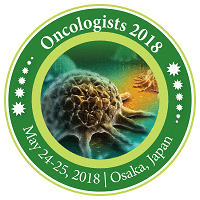Hessah Alsulami
Arabian Gulf University, Saudi Arabia
Title: Stem Cells in Acute Lymphoblastic Leukemia and In-Vitro Assessment of the Effect of Parthenolide
Biography
Biography: Hessah Alsulami
Abstract
Introduction & Aim: Acute Lymphoblastic Leukemia (ALL) is the most common childhood malignancy, representing around one-third of all childhood malignancies. In Saudi Arabia ALL accounts for around 35% of all childhood cancers. Despite a high cure rate, some cases relapse. Current drug efficacy studies focus on reducing leukemia cell burden. However, if drugs have limited effects on LSCs, these cells may expand and eventually cause relapse. The experimental anti-leukemic drug Parthenolide (PTL) acts by inhibiting transcription factor Nuclear Kappa B (NFκB), activating p53 and increasing Reactive Oxygen Species (ROS) in leukemic cells. In the present study we assessed the in vitro effect of PTL on immunophenotypically defined Leukemic Stem Cells (LSCs) and normal Hematopoietic Stem Cells (HSCs). Because NFκB is constitutively active in LSC and PTL is a potent inhibitor for it, we also investigated the expression of activated NFκB (NFκB p65) in selected samples.
Method: Forty (40) ALL samples and 24 normal bone marrow and cord blood samples were included in this study after obtaining informed consent. The mononuclear cells from ALL and normal samples were isolated using density gradient separation. ALL samples were sorted into 4 LSC populations (CD34+CD38-CD19+, CD34+CD38+CD19+, CD34+CD38-CD19-, and CD34-CD38-CD19-). Unsorted and sorted cells were cultured with different PTL concentrations for 24, 48 and 72 hours. Post-culture cell viability was assessed using 7ADD in a flow cytometry-based test. Normal unsorted marrow and cord blood samples were tested under similar conditions. In addition, Colony Forming Unit assay (CFU) was carried out with normal samples to assess the effect of PTL on HSCs. In selected ALL and normal samples the expression of NFκB was assessed using PE labeled anti-NFκB p65 antibody.
Results: In ALL, LSCs form heterogeneous compartments with different percentages of the four LSC populations. This heterogeneity extended across and within cytogenetically classified groups of cases. There was no significant effect of PTL on the viability of normal cells at concentrations of ≤50 μM; but at 25 μM and 10 μM after 24 and 72 hours respectively it affected the ability of HSCs to form colonies. For ALL-LSCs PTL was significantly toxic at 10 μM and most cases with the exception of those with +3 karyotype abnormality and CD34-, CD38-, CD19- LSCs with t(9;22), showed >50% cell-death at 25 μM PTL concentration. The CD34+, CD38+, CD19+ LSCs showed significantly higher sensitivity compared to other subpopulations. ALL cases with limited response to PTL expressed significantly higher levels of pNFκB p65 as compared to PTL-sensitive cases.
Conclusion: The study concluded that LSCs are heterogeneous within and between cytogenetically classified groups of ALL. Overall, CD34+, CD38-, CD19+, and CD34+ CD38-, CD19 cells are the predominant LSC populations in B-ALL. PTL has a differential effect on normal HSCs versus ALL cells at lower concentrations in vitro; cord blood HSCs is more resistant than marrow cells. PTL also has a differential effect on LSC subpopulations. PTL sensitivity/resistance in ALL is related to the level of activated NFκB expression in these cells.

